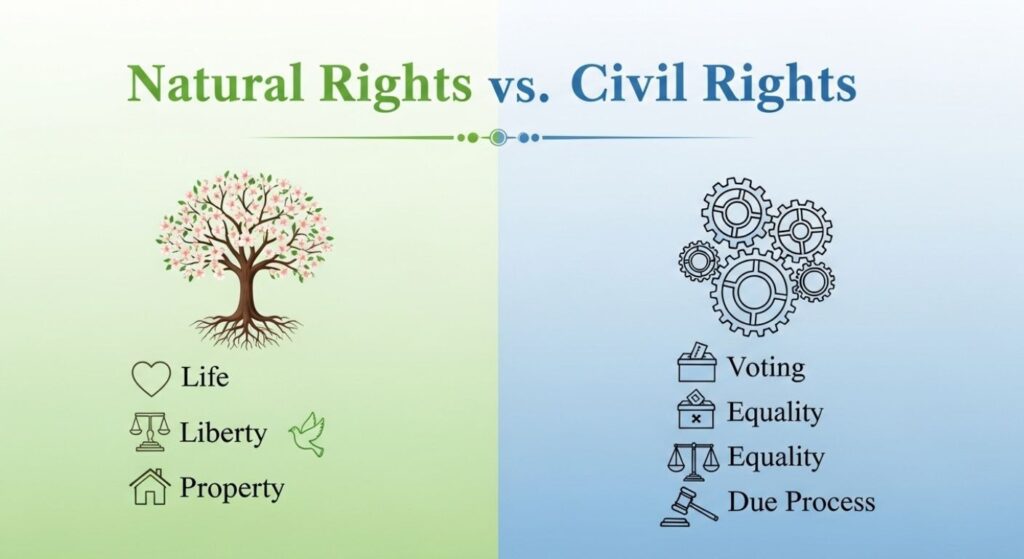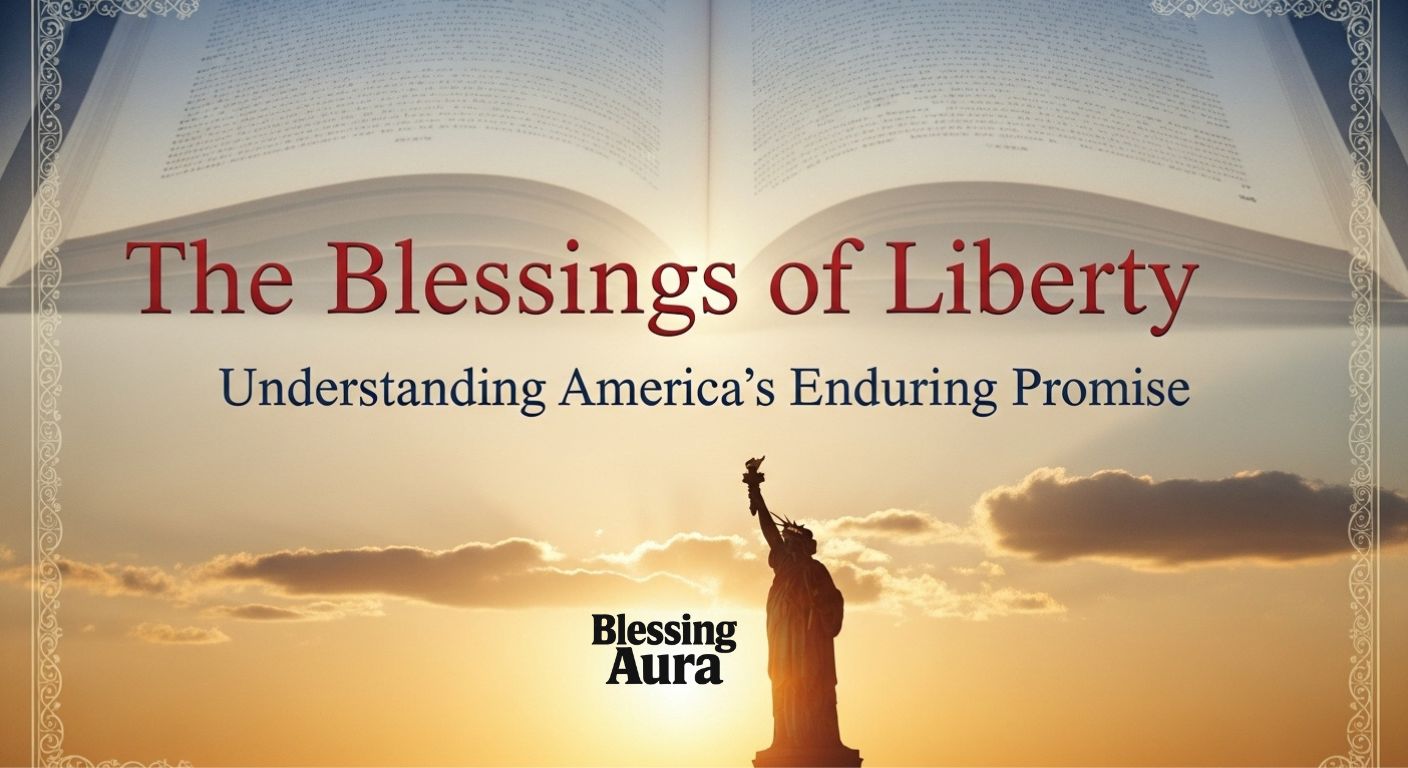The story of the blessings of liberty is the story of America itself. From the earliest days of our republic, Americans have sought to understand what true freedom means and how it should shape our lives. The phrase itself appears in the Constitution of the United States, reminding us that liberty is not a mere privilege—it is a sacred trust passed down through generations. It is both a right and a responsibility, one that asks every citizen to act with virtue, faith, and wisdom.
What Did the Founders Mean?

When the American founders spoke of the blessings of liberty, they envisioned a nation built upon self-evident truths—that all people are created equal and endowed by their Creator with natural rights that no government can take away. These unalienable rights include life, liberty, and the pursuit of happiness, as written in the Declaration of Independence. These words were not poetic decoration; they reflected centuries of classical political thought and natural law tradition drawn from thinkers like Aristotle, Cicero, and St. Thomas Aquinas.
Abraham Lincoln later described this vision through his famous image of Lincoln’s apple and picture of silver, explaining that the Declaration of Independence was the apple, while the Constitution of the United States was the silver frame that protects it. The founders believed that freedom came from laws of nature and nature’s God, not from kings or parliaments. They were influenced by John Locke’s social contract theory but went further, blending Enlightenment philosophy with a strong belief in divine truth. The result was a system of constitutional self-government, a bold experiment in liberty and virtue.
| Foundational Influences | Key Ideas |
| John Locke | Natural rights and social contract |
| Aristotle | Virtue and happiness through moral action |
| Cicero | Natural law and justice |
| Aquinas | Harmony between faith and reason |
| Magna Carta | Rule of law and limits on power |
Natural Rights vs. Civil Rights

The founders made a clear distinction between natural rights vs. civil rights. Natural rights are God-given, part of who we are. They cannot be created or destroyed by governments. These include the right to life, the right to liberty, and the pursuit of happiness. In contrast, civil rights are legal protections that governments establish to maintain order and fairness. When civil rights respect natural law, they strengthen freedom; when they violate it, they destroy it.
Today, modern political thought and morality often blur this line. Some laws claim to promote liberty while actually denying it. For example, the abortion and natural rights debate raises difficult questions about whether a so-called “right to choose” can exist if it takes away another person’s right to life. The founders would have rejected this as a false liberty. They believed that freedom rooted in moral order is the only freedom that can last. John Adams wrote that liberty cannot exist without virtue, because virtue as the foundation of happiness ensures that rights serve the common good, not selfish desires.
Human Nature
To understand liberty, we must understand ourselves. James Madison, in the Federalist Papers, wrote that “if men were angels, no government would be necessary.” His words reveal a deep understanding of human nature and community. Humans are both fallen and social. We are capable of great good and great evil. Government, therefore, exists as a reflection of our nature—a tool to guide us toward virtue, not away from it.
St. Thomas Aquinas taught that every person desires happiness and the pursuit of the good. This pursuit is not merely emotional; it requires discipline, virtue, and community. Humans are created in the imago Dei, meaning in the image of God. We find joy in relationships and community, not isolation. A society that ignores this truth drifts into chaos. A nation that understands it builds a moral order that supports liberty and justice for all. In this way, liberty depends on character. Virtue builds freedom, while vice destroys it.
The Blessings of Liberty and the Church
Faith and freedom were never meant to be enemies. The founders saw religion as the moral compass of self-government, not a threat to it. There was no intention to divide Church and state completely but to ensure that the government never trampled on faith. The Catholic understanding of liberty teaches that true freedom is the ability to choose the good, not the license to do whatever we wish.
Catholic social teaching emphasizes that liberty without virtue is an illusion. The Church reminds us of our Catholic civic duty—to engage in moral action in public discourse, defend truth, and promote the common good. As Pope Pius XI stated in Quadragesimo Anno, the Church’s mission is not just to guide men to temporary comfort but to eternal happiness. Through Christ, humanity finds the truest pursuit of happiness in God, for He is the source of all liberty and life. This is the heart of the American founding and Catholic teaching—that freedom flourishes only when rooted in faith, virtue, and truth.
| Christian Truths in Liberty | Civic Principles |
| Faith and reason | Guide moral laws and governance |
| Virtue ethics | Ensure freedom serves the good |
| Catholic perspective on democracy | Sees liberty as service to others |
| Catholic duty in public life | Protects the vulnerable and promotes justice |
FAQ’s
What does The Blessings of Liberty mean?
The Blessings of Liberty mean the freedom and rights given by God to every person. They remind Americans that true liberty comes with virtue, justice, and moral responsibility.
How did The Blessings of Liberty shape America?
The Blessings of Liberty shaped America by guiding the American founders to create the Constitution of the United States and protect natural rights for every citizen through self-government.
Why do Americans value The Blessings of Liberty?
Americans value The Blessings of Liberty because they protect life, liberty, and the pursuit of happiness, allowing people to live freely under a just and moral order.
How can The Blessings of Liberty be protected today?
The Blessings of Liberty can be protected when citizens act with virtue, faith, and respect for the laws of nature and nature’s God, preserving freedom for future generations.
What connects faith with The Blessings of Liberty?
Faith connects deeply with The Blessings of Liberty because true freedom begins with belief in God, guiding people to live rightly, serve others, and seek eternal happiness.
Conclusion
The Blessings of Liberty remind us that freedom is not free. It comes from God and must be lived with truth and virtue. When people respect The Blessings of Liberty, they protect the natural rights of every person. These rights—life, liberty, and the pursuit of happiness—are the heart of America’s promise. The founders built the Constitution of the United States to guard these sacred gifts for all.
Today, The Blessings of Liberty still guide the nation toward justice and peace. Every citizen has a duty to defend them with courage and faith. When we follow The Blessings of Liberty, we build a country rooted in the common good and moral order. They are not only America’s foundation but also our hope for a future of unity, virtue, and lasting freedom.

Welcome to Blessing Aura! I’m Muhammad Anas, an Digital Marketer and Ebay Dropshipping Expert with 1 year of experience, I help business, brands and store to grow online. My goal is to run ads and sell effective products for everyone, Let’s achieve more together!

